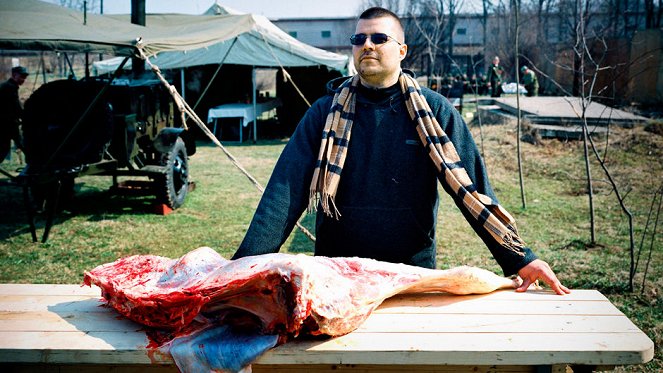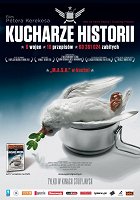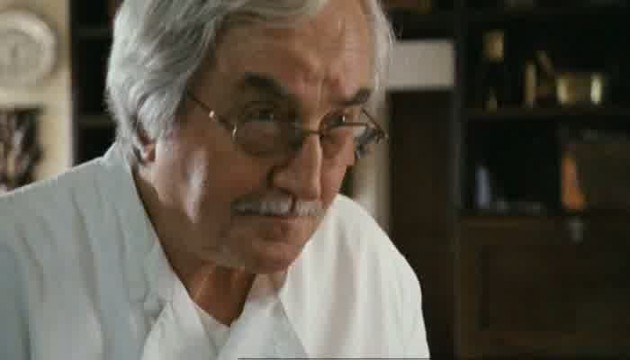Rendező:
Peter KerekesForgatókönyvíró:
Peter KerekesOperatőr:
Martin KollárZeneszerző:
Marek PiačekTartalmak(1)
A documentary film about army cooks and how the everyday needs of thousands of armed stomachs affect the victories and defeats of statesmen. It is about the field kitchen as a model of a world where food preparation becomes a combat strategy; the battle for great ideals standing on the strong legs of the kitchen table. The film is built upon eleven recipes from military cooks since the Second World War till the war in Chechnya, from France through the Balkans to Russia. (forgalmazó hivatalos szövege)
(több)Videók (1)
Recenziók (1)
An unconventional view of war and the army through the perspective of cooks and their field kitchens. Co-production and a decent budget allowed for a journey through various countries and historical periods, so the audience has the opportunity to confront the views of World War II veterans, through the Algerian war, and up to the present day. This way, we can understand certain contexts that escape us during a casual glance at news about the conflict in Chechnya or the Balkans. The Serbian cook brings a smile with the remark "We cooked against the Croats," while during the confession of the Croatian cook, I understood why I passed burnt Serbian villages during my journey through Croatia. During the confession of the Russian cook, we will understand how supply in the Russian Federal Army works - or rather doesn't work - and why units of the Russian army have to resort to looting. The German cook on the submarine, in addition to describing how he cooks for his colleagues in a miniature kitchen, manages to depict how he was the only one able to save himself when his ship sank. It is all presented with a certain ironic exaggeration, and the interviews are complemented by military recipes such as shashlik for one hundred thousand Soviet occupiers or bread for eighteen million German soldiers on the front lines of World War II. We also get a glimpse into the kitchen of Yugoslav leader Tito and can admire a charming female body adorned with cheeses and cured meats as a feast for the international elite. Overall impression: 70%. Do you know what would happen if all army cooks refused to cook? How does one of them respond to this question? Nothing, they would just have to leave the safety of their kitchen and go to the front lines...
()
Galéria (7)
Photo © Mischief Films


